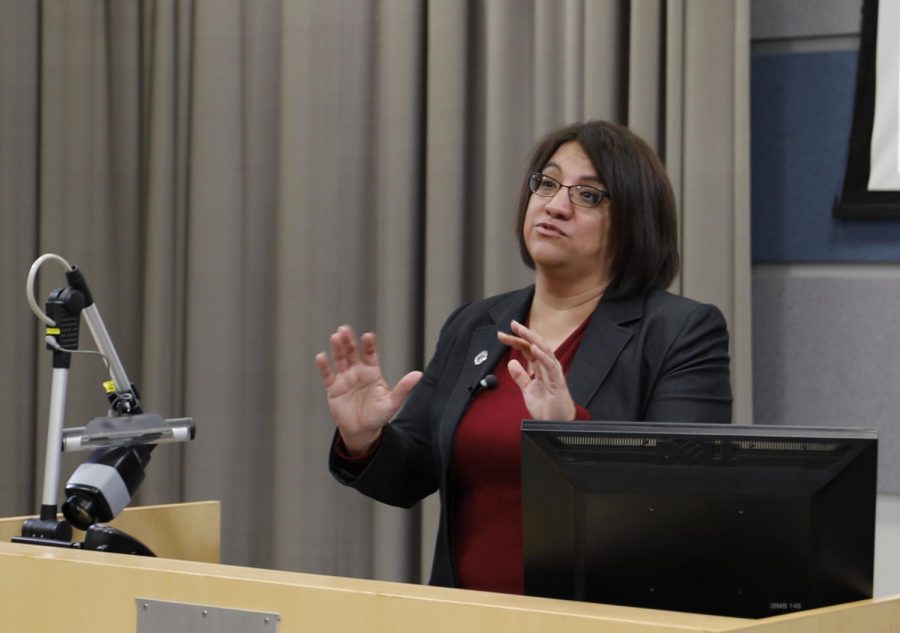Student Affairs outlines finances
VP says division works to restore reserves, improve ability to serve students
EZEKIEL NELSON | DAILY EVERGREEN FILE
Mary Jo Gonzales, Vice President of Student Affairs, said students fees are used to help WSU pay for outstanding deficits.
February 23, 2018
Vice president of Student Affairs Mary Jo Gonzales explained her department’s finances and restructuring progress to the Faculty Senate on Thursday.
Gonzales said the division’s $160-million budget was part of the reason it began a restructuring process. They have $45 million in reserves, she said, and just 3.1 percent of their budget is state-funded.
“Our budget is probably one of the most complex budgets that exists,” she said, “but there is an illusion that all of that is funded by state funding, which is absolutely inaccurate and untrue.”
Like every other unit across the institution, Gonzales said, the division is very concerned about its reserve balance.
“Our reserve levels are exceedingly low for an institution of our type,” she said.
The division has had to reduce spending to work toward restoring reserves. Gonzales said Student Affairs has to weigh how to pare its spending without affecting students’ ability to graduate.
“[We’re as] concerned as you are about our expenditures and what we’re doing to definitely serve students more efficiently and effectively,” she said, “but also support those initiatives that are most important to help our students get across that stage at graduation.”
When a faculty senator asked what Student Affairs would prioritize if the budget situation improved, Gonzales said more money needed to go toward helping students who have worked hard to graduate.
However, she added, it is equally important to invest in research and faculty.
“We have to come together as a community to decide what is most important for us to move forward as an institution, as a system,” she said.
Gonzales said that during the interview process for her position, she learned students from different populations felt disconnected from the university and were struggling in multiple ways. She found there was a gap in the relationship between student affairs and academic affairs.
“What we’ve also done over the past year,” she said, “is really think about how do we integrate more fully the in classroom and out-of-classroom experience.”
There are four primary changes the division is working on, she said. The first is student engagement and ensuring students are involved on campus.
She also touched on community, equity and inclusive excellence to foster a campus culture where all students are welcomed. The university has not had a senior leader whose job is to focus on these aspects of the university in 10 years.
The university is currently in the process of hiring an associate vice president for community, equity and inclusive excellence. Two of four final candidates have visited Pullman.
Gonzales said the dean of students, which is within the Division of Student Affairs, focuses on health and safety for students and creating environments that foster effective decision-making.
The management of the division’s facilities — like residence halls, the Elson S. Floyd Cultural Center and the Chinook Student Center — that serve as spaces for students to “live, eat and play” are also a concern for the division, she said.
Gonzales said there are six different units across the university working to implement cultural competency training.
“It took me a year to really understand the issues that students were experiencing, but frankly it wasn’t just students,” Gonzales said. “It was also our faculty and staff.”
















